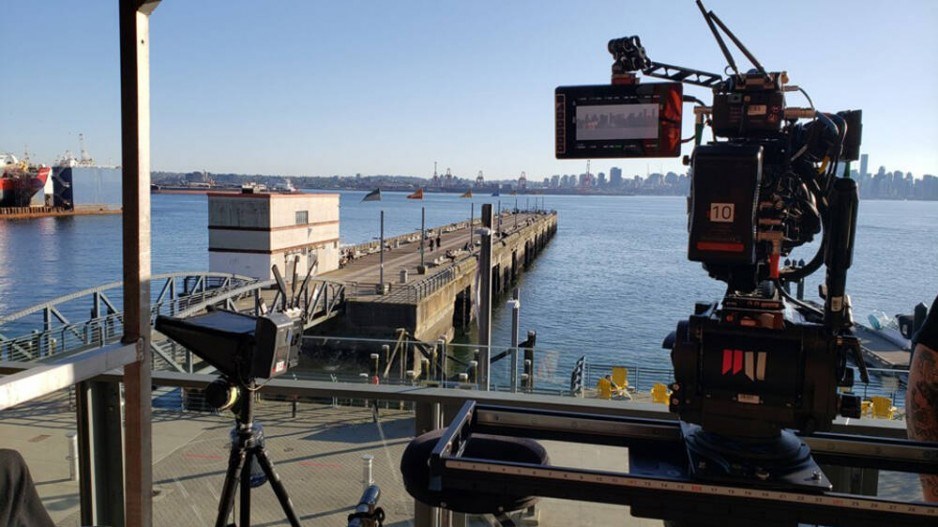The lights have dimmed. The cameras aren’t rolling. And there’s next to no action.
Local film and TV production workers are reeling as two Hollywood-based strikes have put Metro Vancouver’s sizeable film business into stasis.
Strikes by members of the Writers Guild of America and Screen Actors Guild-American Federation of Television and Radio Artists in their labour disputes against the Alliance of Motion Picture and Television Producers mean only small, non-unionized shoots are still happening in Hollywood North.
That’s a wrap
Tony Lazarowich, a 37-year special effects veteran, had been preparing to shoot Final Destination 6 but has now been told not to expect to get called back to the set until 2024.
“For any producers to forecast that as the worst-case scenario, that’s not encouraging at all,” he said. “It’s pretty bleak.”
Clare Husk, film co-ordinator for the City of North Vancouver, said it became clear that strikes were coming as early as February when the number of permit requests fell off.
In the first half of 2022, the city granted 71 film permits for 94 days of filming, bringing in $274,422 in revenues. In the same period this year, there were just 27 permits for 29 days of shooting and $65,719 in fees collected.
“Our numbers are hugely down year on year,” she said. “And in April, I did not have a single permit, which I have never experienced in the nearly 10 years I’ve been doing this.”
Husk said the only film shoots happening now are commercials and independent passion projects that out-of-work filmmakers are pursuing for the festival circuit.
There are about 70,000 film workers in B.C., 5,000 of whom live in North Vancouver, Husk said.
In 2020 (the most recent year of stats available), more than $110 million was paid in wages to workers with North Shore addresses, according to Creative BC, the province’s film and creative industry marketing agency.
The economic consequences of the strike, though, also extend to businesses that serve the film industry like post-production jobs, caterers, equipment rentals, cleaners, etc.
Lazarowich said he has now had to lay off his staff.
“It’s like we were during COVID, having to pay for rent and all the bills that any regular business has to pay for but with no light at the end of the tunnel,” he said.
Julie McHaffie, who has being doing actors’ hair for more than three decades, said there is no film work on the horizon.
“Usually I’m very, very busy. I had a massive year last year,” she said. “Now, I’m unfortunately unemployed.”
Long-term problems
A large number people who work in the film industry are contractors who own their own businesses. When COVID-19 shut everything down in 2020, a “huge amount” of them took out federal loans to keep themselves out of bankruptcy, McHaffie said. Those loans are now due in December and it’s highly unlikely film workers will have earned enough this year to cover their debts, she added. While some laid-off film workers have transferable skills, the money they can earn outside the industry doesn’t compare.
“I paid some of it, but not all of it and of course, I was planning on working through the fall and after Christmas,” she said. “People have bills to pay and it’s very worrisome.”
McHaffie said she is looking to the federal government to further extend the payback period in light of the circumstances.
The film industry is notoriously feast-and-famine, but Lazarowich now said he worries film workers will seek out new careers out of necessity and won’t be willing to come back when the strikes are over, making it harder for B.C. to land big productions with high-paying jobs in the future.
“There’s lots of highs and lots of lows when it comes to work, but this is a very, very hard low,” he said. “I fear that a lot of really talented people are going to be leaving and the industry will suffer from it, and not suffer just for a short period.”
Union support high
Lazarowich said it appears both sides in the labour disputes have “dug in” and aren’t negotiating, which is ominous for when a resolution may be reached, although he ultimately supports the union positions.
People assume that actors and writers are paid handsomely, but that’s only the case for a small percentage of them, Lazarowich said.
“These are just the bread and butter, working class actors who still have to have second jobs … to not live below the poverty line,” he said. “It’s a necessity for people to get paid fairly and I feel that the actors and the writers are not being paid fairly.”
Despite the hard times, McHaffie expressed a similar sentiment.
“I support the actors, and I support the writers immensely. Without actors, I don’t have a job,” she said. “I support what they’re trying to do, what they’re trying to say, because I see it in front of me all the time.”




